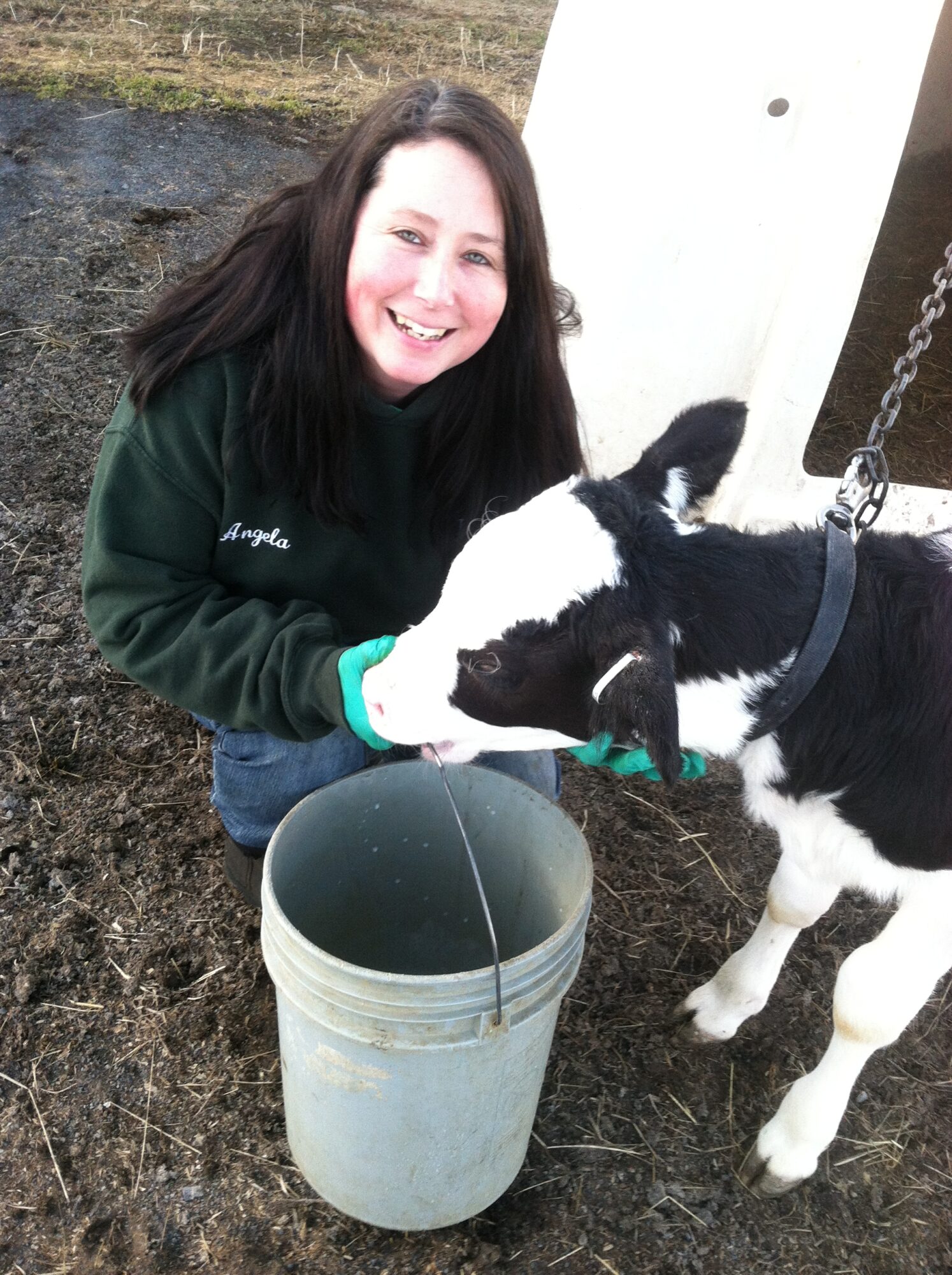Close your eyes for a moment and picture a “farmer.” What do you see? Chances are you see an image of an older gentleman in overhauls, seed cap in hand. Maybe he’s driving a tractor or working on heavy equipment. The numbers certainly bear that image out—the average farmer in the US is a 58-year-old male. It is most certainly a male-dominated industry. Of the farmers that grow our food and feed our families, only 30% are women. Farmers already are a tiny minority in this country, making up barely 1.5% of the total population. There are fewer than 1 million women farmers in the US.
I’d never given it much thought—being a woman in farming. It’s not exactly an easy life. But even more so, being a member of a tiny minority means that I often find myself disconnected from the general public in surprising ways. Quite frankly, there are just some subjects that I would never broach with my old college roommates or former co-workers! Thankfully, the women that I have met over the years whose passion and life-long (and often generations-long) jobs are in farming have been nothing short of an inspiration to me. They’ve answered my silly questions, they’ve laughed with me, and most importantly, they’ve shared their very personal stories with me. Women like Joanne, Angie, Vera, and Karen; Laura, Robin, Diane, and Jaime; Dorothy, Sue, Kelly, and Fiona—all these and many more have helped me understand what it means to be a woman in farming.
Women farmers throw 40-lb hay bales, pick up 100-lb calves and lug 5-gallon pails filled to the brim with feed or water. They drive skid steers and tractors—mowing, raking and tedding to make sure enough hay is put away for the winter. They run to get tractor parts or hydraulic fluid, bailing twine or minerals for the heifers, and manage to pick the kids up from baseball practice at the same time. They keep their cool when their spouse—or one of their children—crushes their hand in a piece of equipment and has to be rushed to the emergency room. They don’t hesitate to run a stomach tube down a newborn lamb’s throat to save its life or sink a hypodermic needle deep into a cow’s jugular vein to save hers. Their hands are rough and calloused, their nails far from manicured. They have bad knees, bad feet, and bad hips, just like their husbands. Many of them also have off-farm jobs besides their on-farm responsibilities. (According to the USDA, women operators are less likely to report farming as their primary occupation and more likely to work an off-farm job.) And yet, they cook and clean, make sure the kids are bathed and have their homework done, the bills are paid, and the young couple down the street with the new baby gets a plate of homemade cookies. Women farmers are an amazing bunch.
But farming has an emotional aspect that is easily overlooked—one that can take a decidedly greater toll on women than on men. In all honesty, I’ve cried—let’s face it, sobbed—in our barn more often than I’d care to admit. I know other women farmers who have cried in their own fields as they watched their hard work and money quite literally wash away. I know women whose hearts were broken when their animals had to be shipped or their barn burned down. And I know others that simply had to walk away. All of them will tell you:
>
“Never have I loved something so much that has taken so much out of me.”
Why do women love farming? For each woman farmer, that love is deeply personal. Whether it is for the love of working at home with your family all around you, for the love of newborn calves, for the pride of producing food that feeds a nation, women farmers find something special to sustain them. For me, it’s the “other women” in my life—my does (female goats) and my ewes (female sheep). Raising them to be healthy and helping them become good mothers is, without a doubt, my favorite job on the farm. When things go right—as they most often do—there is no better feeling. And when things go terribly wrong, there is no better ear than that of a fellow female farmer.
It is precisely this realization that brings me back around to the importance of women farmers connecting and sharing their stories with one another. The Deputy Secretary for the USDA—a woman—started a Women in Agriculture Mentoring Network earlier this year. According to the USDA, “The hope is that women nationwide, across all areas of agriculture, will have a new support system to help them form professional partnerships with other women—sharing stories, seeking advice, or providing mentorship.” Those interested are encouraged to email agwomenlead@usda.gov to share their stories or use the hashtag #womeninag in social media.
If you are new to farming, reach out so you know you are not alone. If you’ve been farming all your life, help a fellow woman farmer simply by sharing your story. I’d be willing to bet the vast majority of those 1 million women farmers have no idea how truly inspiring they can be.
